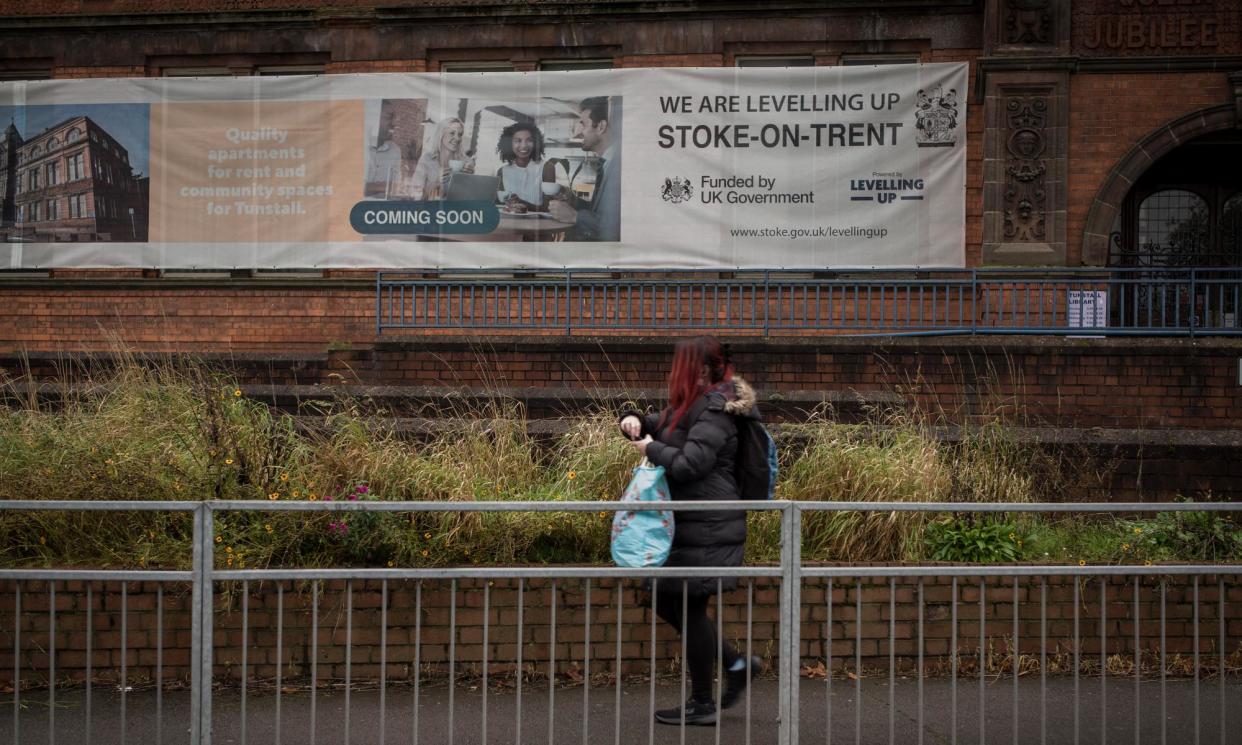‘Glacial’ progress on levelling up in UK means more resources needed, says thinktank

Progress towards a series of levelling up goals set by the UK government has been “glacial”, and achieving them by the target date of 2030 will require a big increase in resources for struggling areas, a leading thinktank has said.
The Institute for Fiscal Studies (IFS) said that, on many measures, regional inequality had widened and the UK had gone into reverse.
In 2022, the government set out a white paper containing 12 goals aimed at “levelling up” the UK.
While praising the clarity and ambition of the plan, the thinktank said the Covid-19 pandemic and the cost of living crisis had combined to make the period since the last election, in 2019, a challenging time to make good on the Conservative party’s pledge to narrow the UK’s geographic divisions.
The white paper’s missions included goals for primary school attainment, public transport use, high-quality skills training and employment; however, the IFS report found that:
The share of pupils in England meeting expected standards at the end of primary school dropped from 65% in 2018–19 to 60% in June 2023, against a target of 90% by 2030. In only 10 English local authorities – all in London – did at least 70% of 11-year-olds meet this target.
The total number of further education and skills courses completed in England fell by 14% between 2018–19 and 2022–23. In the lowest skilled areas, the decline was almost 20%. The goal for 2030 is to have 200,000 more people successfully completing high-quality skills training annually, driven by 80,000 more people completing courses in the lowest skilled areas.
A 21-percentage-point gap in the average employment rate between the best and worst-performing local authority areas in the UK – the widest it has been since at least 2005. The aim is to have rising pay, employment and productivity in every area of the UK, and a smaller gap between the top performing areas and others.
The Conservatives’ aim is for local transport connectivity across England to be significantly closer to the standards of London, but the gap between the use of public transport in London (39% of journeys) and in the rest of the country (7%) during 2022-23 was at its second-widest level since 2002–03, as passenger numbers failed to recover to pre-pandemic levels.
The IFS said there had been some successes, including digital connectivity and new devolution deals in England.
Christine Farquharson, an associate director at IFS, said: “On many of the metrics that the white paper sets out, progress towards levelling up has been glacial. In key areas such as employment, primary school attainment and self-reported life satisfaction, the country’s overall performance has got worse even as gaps between areas have widened.”
Given the performance so far, the IFS said meeting the ambitious 2030 levelling up targets would probably require both substantial resources and changes in how they were allocated across the country.
A Guardian assessment of the levelling up mission in April found that several areas the government had hoped to improve had gone backwards – including health, housing and pride in place.


